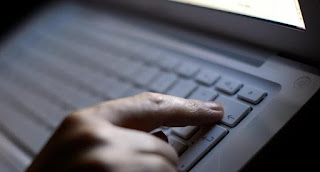Recently, there have been many cases of data leakage in the country. That's why it's important to keep sensitive data from being spread on the internet and being used by irresponsible people.
Kaspersky provides 7 tips on how to keep sensitive data safe and not leaking. What should be done?
1. Enable Encryption
Be sure to enable full disk encryption (FDE) on all devices that store or transmit confidential data. Encryption can protect data if the device falls into the wrong hands.
On Windows, the FDE tool is called BitLocker, while on macOS its FileVault. FDE is enabled by default on most iOS and Android phones; don't disable it unless absolutely necessary.
2. Limit Access to Important Data Only In The Office
A common scenario of many important data falling into the wrong hands is through the loss (or theft) of physical media: external hard disks or flash drives.
Ideally, they should not be taken out of the office. In fact, if you have to copy to an external media, you have to encrypt the data first. For example, many security solutions for small and medium-sized businesses support encrypted storage in the form of a cryptocontainer.
3. Don't Transfer Unencrypted Data Over the Internet
Sometimes you may need to send important data online, via email or file sharing services. Kaspersky strongly recommends avoiding it whenever possible, but if you absolutely must transmit the file, at least encrypt it first, in case of interception.
The easiest way is to create a password protected archive. Almost all archive utilities have this option.
After you have encrypted the information, send the password to the recipient through a different channel, for example attach the information to an email, but send the password via a different messaging application.
supports end-to-end encryption.
4. Delete Sensitive Data You No Longer Need
Even obsolete information can still cause problems, so it's best to get rid of it. For less sensitive information, at the very least, delete and empty your Recycle Bin so that data cannot be recovered with a single click.
For any data that is not even that sensitive, use a file shredder utility to prevent recovery.
5. Backup Encryption
Backups are essential, but they can also be a source of leaks. That's why, before backing up confidential data, you should place it in a crypto container.
6. Save More Than One Copies
Store data in several places that are isolated from each other. For example, you might store one copy of a file on your computer and another on an external drive or in reliable cloud storage.
Again, don't forget to encrypt the file first.
7. Securing Crypto Container Archives And Passwords
Losing the password for an archive containing important business data means you have lost that data. Store passwords in a purpose-built application such as the Kaspersky application to generate and store complex passwords securely.
In addition to a password management utility, our security solutions for MSMEs also include tools to create crypto containers and automate the data backup process. Naturally, it also protects computers and smartphones from malware that could compromise company secrets.


